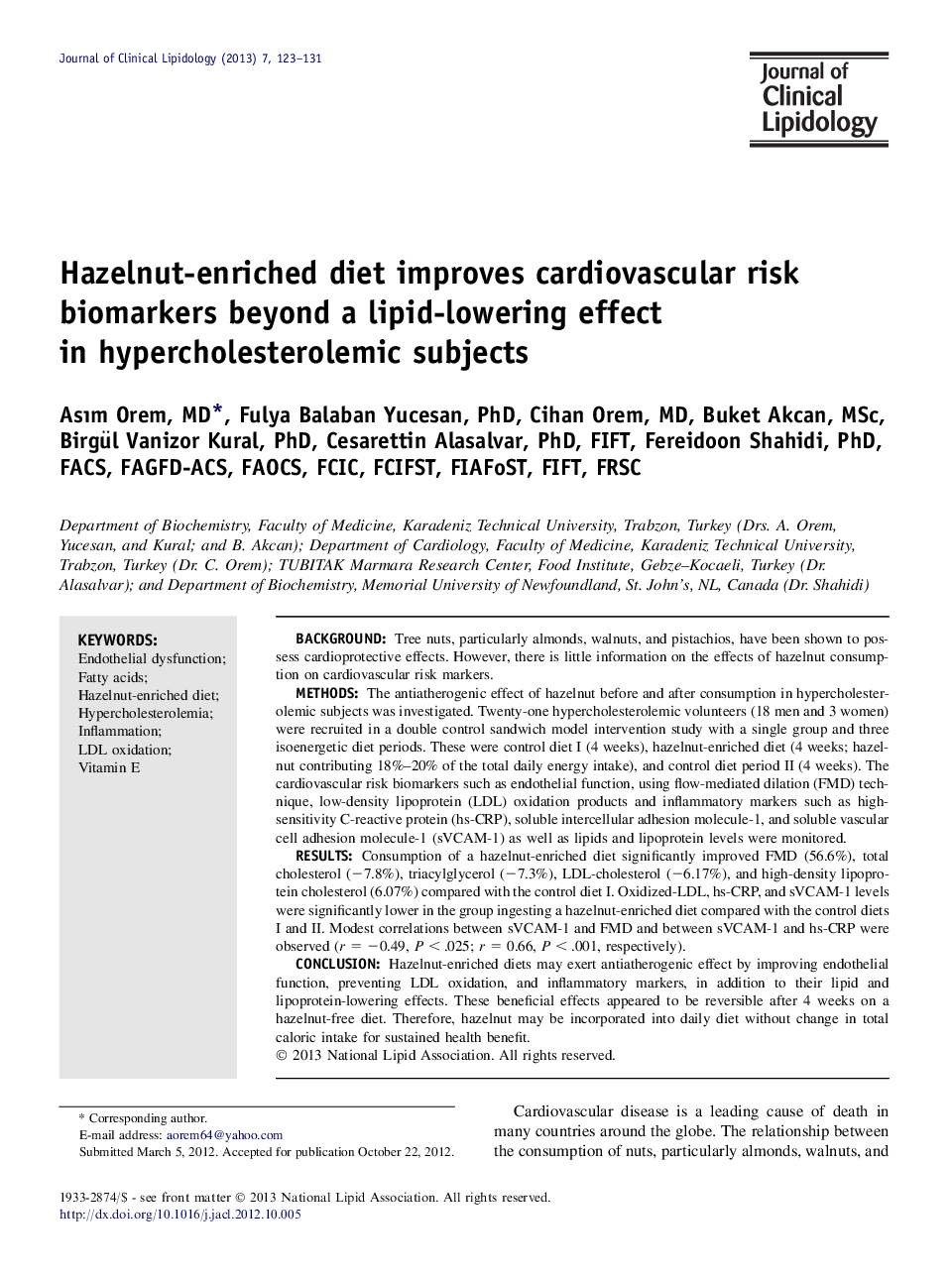| Article ID | Journal | Published Year | Pages | File Type |
|---|---|---|---|---|
| 5986105 | Journal of Clinical Lipidology | 2013 | 9 Pages |
BackgroundTree nuts, particularly almonds, walnuts, and pistachios, have been shown to possess cardioprotective effects. However, there is little information on the effects of hazelnut consumption on cardiovascular risk markers.MethodsThe antiatherogenic effect of hazelnut before and after consumption in hypercholesterolemic subjects was investigated. Twenty-one hypercholesterolemic volunteers (18 men and 3 women) were recruited in a double control sandwich model intervention study with a single group and three isoenergetic diet periods. These were control diet I (4 weeks), hazelnut-enriched diet (4 weeks; hazelnut contributing 18%-20% of the total daily energy intake), and control diet period II (4 weeks). The cardiovascular risk biomarkers such as endothelial function, using flow-mediated dilation (FMD) technique, low-density lipoprotein (LDL) oxidation products and inflammatory markers such as high-sensitivity C-reactive protein (hs-CRP), soluble intercellular adhesion molecule-1, and soluble vascular cell adhesion molecule-1 (sVCAM-1) as well as lipids and lipoprotein levels were monitored.ResultsConsumption of a hazelnut-enriched diet significantly improved FMD (56.6%), total cholesterol (â7.8%), triacylglycerol (â7.3%), LDL-cholesterol (â6.17%), and high-density lipoprotein cholesterol (6.07%) compared with the control diet I. Oxidized-LDL, hs-CRP, and sVCAM-1 levels were significantly lower in the group ingesting a hazelnut-enriched diet compared with the control diets I and II. Modest correlations between sVCAM-1 and FMD and between sVCAM-1 and hs-CRP were observed (r = â0.49, P < .025; r = 0.66, P < .001, respectively).ConclusionHazelnut-enriched diets may exert antiatherogenic effect by improving endothelial function, preventing LDL oxidation, and inflammatory markers, in addition to their lipid and lipoprotein-lowering effects. These beneficial effects appeared to be reversible after 4 weeks on a hazelnut-free diet. Therefore, hazelnut may be incorporated into daily diet without change in total caloric intake for sustained health benefit.
